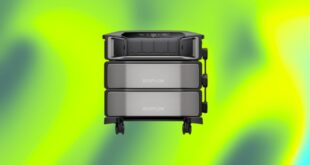Shopping for a new mattress as a first-timer can be overwhelming. There are so many options on the market, like foam mattresses, innerspring beds and hybrid mattresses. With the often hefty price tag, it isn’t something you want to purchase without doing your research.
I’ve been in the mattress industry for years now, so I know the type of mattress I need based on my sleeping position, body type, budget and preferences. I know not everyone has the same understanding.
I asked AI to recommend a mattress to see just how it compares to my own advice as a mattress expert. Here is what I found.
Read more: I Went to Bed With a Robot to Get Better Sleep. This Is What Happened
Mattress recommendations from AI
As the most available open AI model, I first turned to Chat GPT 3.5 to inquire about mattress advice. I then used the newer version, Chat GPT 4, and compared my results. Here is what each AI model knows about mattresses.
Advice from Chat GPT 3.5
To begin my research, I first asked the 3.5 AI model, “Can you recommend me a mattress? I’m a side and stomach sleeper that gets hot at night.”
The AI gave me a few factors to keep in mind when choosing a mattress, it told me that it couldn’t offer me actual mattress brands or products since its knowledge cut off at its last update in January 2022. It did give me three helpful points. Let’s dive into them.
Firmness level: ChatGPT told me to consider a mattress that is medium-firm to firm. It wrote, “This can provide the necessary spinal alignment for stomach sleeping.” I agree that medium-firm to firm can work for some stomach sleepers, but it failed to recognize that combination sleepers may need medium-firm. When I’m on my side, I most likely won’t be comfortable on a bed that is too firm as it may put too much pressure on my hip and shoulders.
Temperature regulation: ChatGPT also told me to look into mattresses with cooling technology. This may be obvious advice, but it is important. It told me to search for mattresses with “cooling gel layers or breathable materials,” which could be misleading since not all cooling mattresses use gel (and not all gel mattresses are actively cooling). It also doesn’t provide what other materials are breathable such as latex foam, springs or hyper-elastic polymer.
Materials: Lastly, Chat GPT 3.5 told me to get a mattress with “memory foam with open-cell construction.” I believe it means perforated memory foam or latex foam, but the wording is a little confusing. It’s right that this material is good for side sleepers and hot sleepers.
This model ended by noting, “It’s best to test mattresses in person to find the one that suits your comfort preferences.” I agree with this statement, and I’m glad it persuaded me to test mattresses on my own rather than listen to its advice blindly. This model couldn’t provide me with too much information and failed to give me brands or specific beds to check out.
Advice from Chat GPT 4
The information from Chat GPT 3.5 was helpful, I know that customers are usually looking for actual brands and specific mattress models. So I tried version 4 instead (note: it is $20 per month for this upgrade).
I said to this AI model, “I am shopping for a mattress. I’m a combination sleeper, and I sleep hot. Can you recommend me a mattress?” For context, a combination sleeper is someone who rotates between sleeping positions during the night. In my case, I switch between sleeping on my stomach to sleeping on my side.
To my surprise, the AI was able to give me types of mattresses this time. It recommended memory foam mattresses with cooling gel, hybrid mattresses, latex mattresses and innerspring mattresses. The response also included a firmness level of medium-firm, which contradicts what the first model told me.
From that information, I asked the AI if it could recommend specific mattress brands. It recommended eight top brands that are popular among combination sleepers and have cooling properties. It recommended Saatva, Purple, Casper, Helix, Tempur-Pedic, Leesa and Brooklyn Bedding. Two of those brands made our Best Cooling Mattress list, five made our Best Mattress for Side Sleepers list and three topped our Best Mattress for Stomach Sleepers.
I took it a step further and prompted, “Given those brands, provide me with a list of 10 specific models that fit my needs.” It gave me some great information along with the following mattresses:
I first noticed that two of the mattresses on this list either don’t exist anymore or go by other names. The hybrid Purple mattress is no longer named “Purple Hybrid Premier.” Instead, Purple now offers three different hybrid models: Purple Restore Hybrid Mattress, Purple RestorePlus Hybrid Mattress and Purple Restore Premier Hybrid Mattress. The same goes for Bear Mattress. Its hybrid mattress, once known as Bear Hybrid, is now split into three models: Elite Hybrid, Star Hybrid and Pro Hybrid. It’s uncertain which Purple and Bear hybrid mattresses the AI was recommending.
I also noticed that the additional information that came with each mattress model was mostly true but had a few inaccuracies. For example, ChatGPT told me the Casper Wave Hybrid was a hybrid mattress with foam and coils and features “zoned support for targeted pressure relief, AirScape technology for airflow and a cooling gel layer.” The features were spot-on, down to the branded technology, this is a memory foam and coil mattress, not foam and coil (yes, there is a difference between foam and memory foam). It did get a few mattresses right such as the Helix Midnight Luxe. The AI correctly described this mattress as a memory foam and coil hybrid with “zoned lumbar support, a quilted pillow-top cover with Tencel for breathability and a medium-firm feel.”
Lastly, just as Chat 3.5 did, the model left me with a message about trying these mattresses in person. It said, “make sure to check the trial periods and warranties when making your purchase to ensure you have adequate time to test the mattress and are protected in case of any issues.”
Advice from a human mattress expert
So, did AI get it correctly? Here’s what I was surprised it knew and how my advice differs.
What AI got right
AI gets a couple of points from me for knowing the following:
- Accommodations for hot sleepers: The first AI model was correct to tell hot sleepers to look for a bed with breathable materials such as cooling gel.
- Mattress brands: The brands that version 4 recommended were spot-on. Saatva, Purple, Casper, Brooklyn Bedding, etc. are popular brands with models that accommodate a wide range of sleepers and have made many of our mattress lists. A human mattress expert would also recommend those brands.
- Mattress models: The specific beds it gave were good options for the needs that I specified. Brooklyn Bedding Aurora Luxe tops our Best Cooling Mattress list and is a mattress I would recommend to all sleeper types.
How my advice differs
A human with some mattress and sleep knowledge could tell you the following:
- Body type matters: I didn’t tell the AI that I’m petite to normal body type, but it didn’t mention this in any of its responses. Body type needs to be taken into account when looking for a mattress because this affects how firm or soft a bed will feel to you.
- Include your budget: The AI didn’t give me anything about pricing or budgets (most likely because pricing differs all the time with sales). A budget needs to be taken into account as mattresses vary in price.
- Other materials: The responses I got didn’t go into other materials besides foam, memory foam and coils. There are lots more out there that might be better for you. For example, latex foam can be made synthetically or naturally and can be more supportive, bouncier and durable than memory foam.
- Firmness level: The AI specified the firmness levels for some beds, but it didn’t tell me which firmness I should get with each mattress model. A soft firmness can work for some side sleepers, while a medium firmness is good for other side sleepers, back pain or combination sleepers. Medium to firm is for strict stomach sleepers or back sleepers. Keep in mind that while a bed may claim to be medium, it can feel firmer or softer to you personally depending on your weight and preferred sleeping position.
Should you ask AI which mattress to buy?
It’s true — AI can possibly give you some good mattress options. If you’re looking for a new mattress and don’t know where to start, AI could be a quick hit for inspiration. You need to double-check every bit of information it gives you. The mattress industry moves fast, and some models might have been changed or discontinued.
Ultimately, it is best to first do your research and then physically try out a mattress. This can be done in-store or by ordering one online. Most — if not all — online mattress companies have great trial periods that allow you to try a mattress for free and then return it if you don’t like it. Mattresses also have warranties — take advantage of those.
 synnbiob
synnbiob


